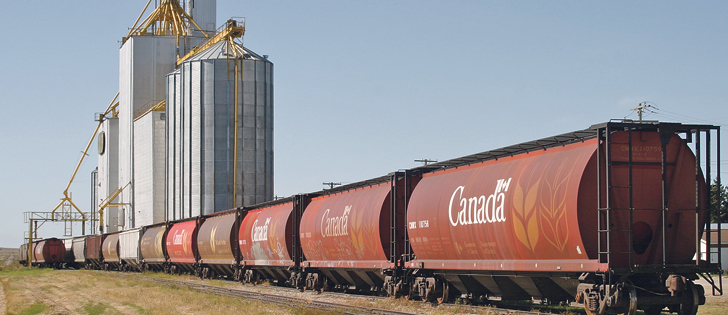The Crop Logistics Working Group allows industry players to discuss transportation issues without the politics, says official
An industry group that has been advising Ottawa on issues related to grain transportation since 2011 will remain in place for now.
Federal Agriculture Minister Lawrence MacAulay announced May 16 that the Crop Logistics Working Group (CLWG) would be re-established for a fourth mandate.
The CLWG consists of representatives from across the grain industry.
It provides a regular forum for grain industry stakeholders to exchange views on grain transportation, identify logistical challenges and promote solutions that would result in a more transparent and efficient grain handling system.
Read Also

Agriculture ministers agree to AgriStability changes
federal government proposed several months ago to increase the compensation rate from 80 to 90 per cent and double the maximum payment from $3 million to $6 million
“It’s a process that’s been really effective,” said Cam Dahl, president of Cereals Canada. “The venue provides a place where we can really get down to some of those nitty gritty transportation issues without … all of the politics.”
Broad representation from a variety of industry groups meant that many different perspectives and concerns were brought to the table and discussed in an effort to arrive at a common industry position, he added.
Jeff Neilsen, president of the Grain Growers of Canada, offered a similar view, saying the CLWG is invaluable in providing “feedback to industry and policy makers about the challenges of getting our farm products to market in a timely manner.
“The continuation of the CLWG means grassroots stakeholders will have the opportunity to take stock of grain supply chain successes and challenges and provide recommendations back to government.”
The formation of the CLWG was announced by former Conservative Agriculture Minister Gerry Ritz in 2011.
At the time, Ottawa was preparing to eliminate the Canadian Wheat Board’s legislated marketing mandate in mid-2012.
The CWB played a key role in managing logistics in the movement of western Canadian wheat and barley destined for export markets.
Dahl said Ottawa’s decision to extend the CLWG’s mandate was welcomed by all organizations that comprise the group.
Its formation resulted in improved communication between industry and government, he said.
“The success of the CLWG really is the common message that was delivered to the government prior to Bill C-49 (Ottawa’s new transportation bill) being delivered around things like accountability, reciprocal penalties and so on,” Dahl said.
“Those types of message really have been reinforced.”
The Grain Monitoring Program was also extended for an additional three years, MacAulay announced.
The program was established in 2001 to provide stakeholders with detailed assessments of the western Canadian grain handling system’s performance.
It publishes weekly performance reports that includes grain deliveries, grain stocks in the country and at port, vessel loadings, vessel wait times, rail car cycle times and a number of key railway performance metrics.


















